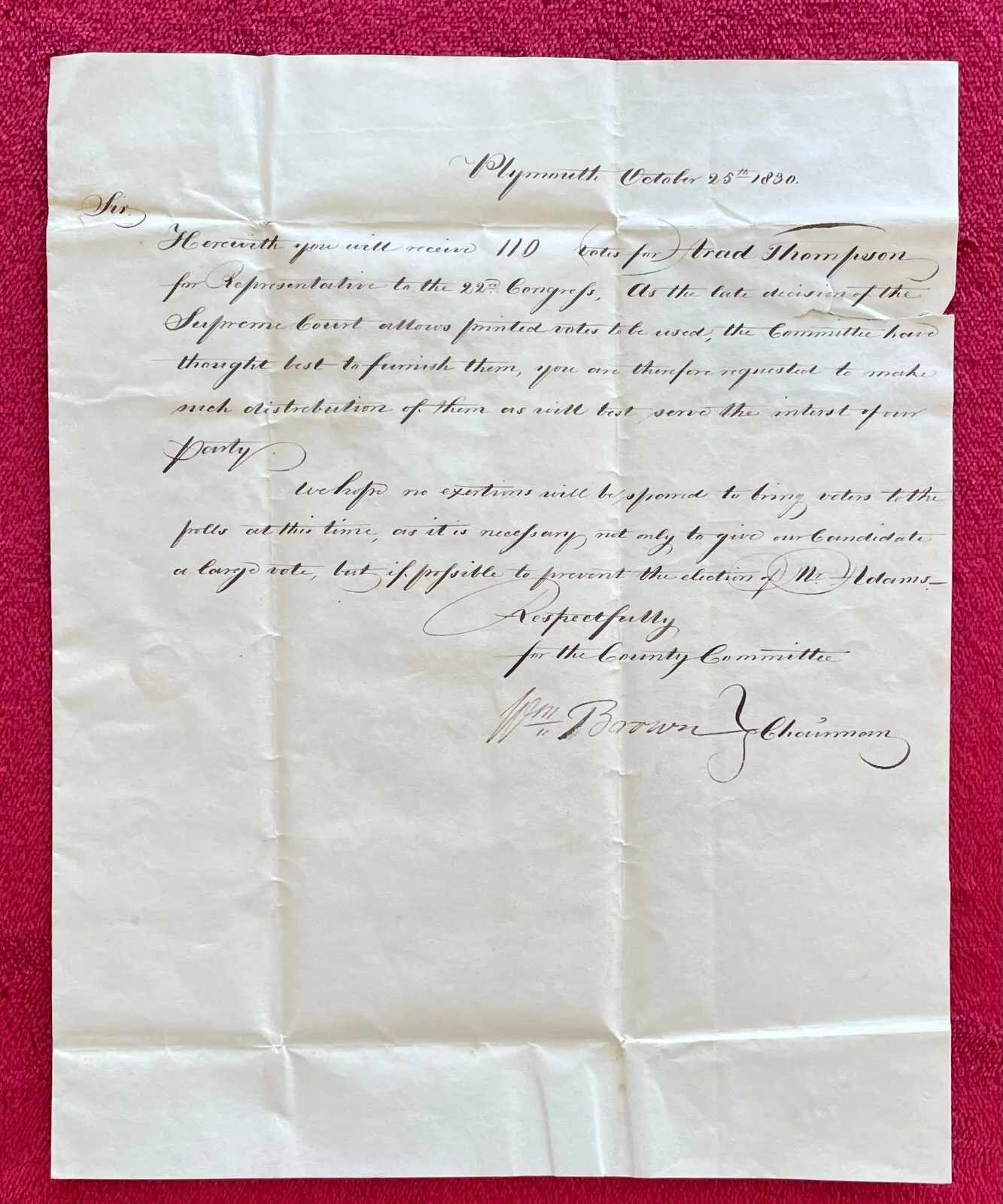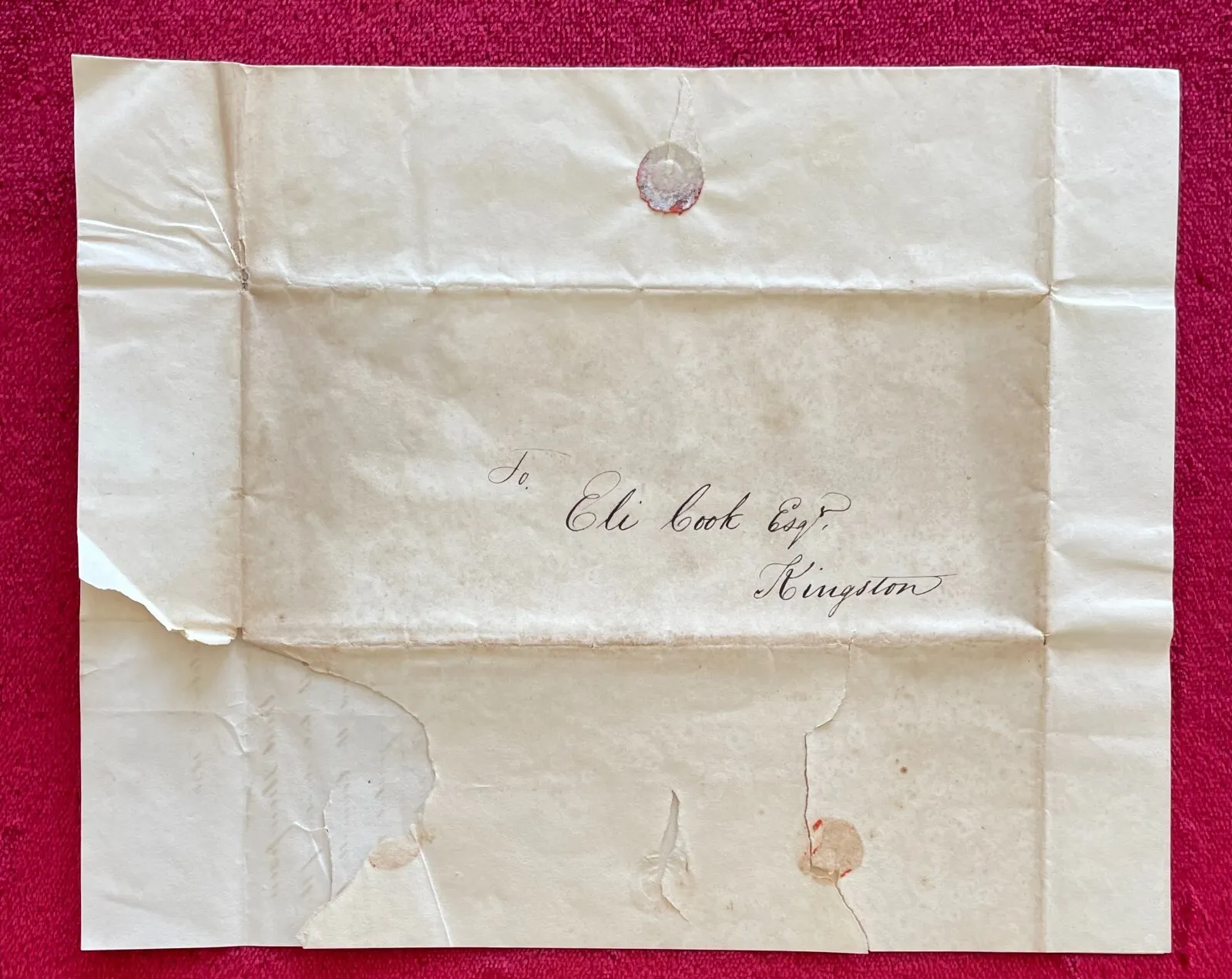-40%
1830 LETTER RE: JOHN QUINCY ADAMS CANDIDACY FOR MASSACHUSETTS REPRESENTATIVE
$ 203.28
- Description
- Size Guide
Description
We are offering a letter, dated October 25th, 1830, to Eli Cook, Esq. of Kingston, Massachusetts from William Brown, Chairman of the Committee for the County of Plymouth, MA.The letter reads, "Sir, You will receive 100 votes for Arad Thompson for Representative to the 22nd Congress. As the late decision of the Supreme Court allows printed votes to be used, the Committee has thought best to furnish them [to you]. You are therefore requested to make such distribution of them as will best serve the interest of our party [Jacksonian Party]. We hope no exertions will be spared to bring voters to the polls at this time, as it is necessary, not only to give our candidate [Arad Thompson] a large vote, but if possible to prevent the election of Mr. Adams" [John Quincy Adams]. We added the bracketed words for clarification, from information we obtained through our research.
**In 1830 John Quincy Adams, former and 2nd President of the United States, ran for Representative from the Massachusetts 11th District of Plymouth. Adams ran in the Anti-Jacksonian Party against Arad Thompson of the Jacksonian Party. Adams won in a landslide with 1,811 votes, while Thompson received 378 votes.
As Representative, Adams opposed slavery, supported rechartering the Bank of the United States, opposed the annexation of Texas, opposed the War with Mexico, and helped to compose the Compromise Tariff Bill of 1832, among other things. During his time as Representative, he regularly presented to Congress anti-slavery petitions that he received from across the nation, after which the House voted to pass a Gag Rule that would table all petitions relating to slavery. Adams served 9 terms in Congress until his death in 1848.
In our research, we have not been able to find out what the Jacksonian Party, in which his opponent Arad Thompson had run, stood for but one would assume the party stood for what Andrew Jackson had stood for - the interests of the common man, and opposition of those of "special privilege".
However, Jackson, who had begun as a man of modest means, became a successful plantation owner and slave owner in Tennessee. Andrew Jackson was president during the time of John Adams' terms in the House of Representatives.
CONDITION: The letter is, for the most part, in Excellent Condition, having a small edge tear on the upper right side. As was common during this time, a letter would also serve as the envelope, being folded over, addressed, and sealed with wax seals. As seen in our image, a piece had torn off at one of the seals when the letter was opened, which very often happened.










